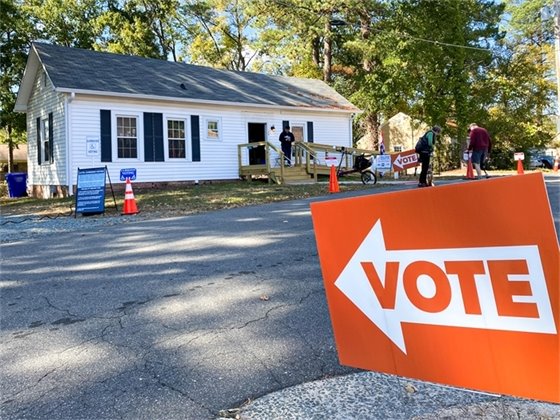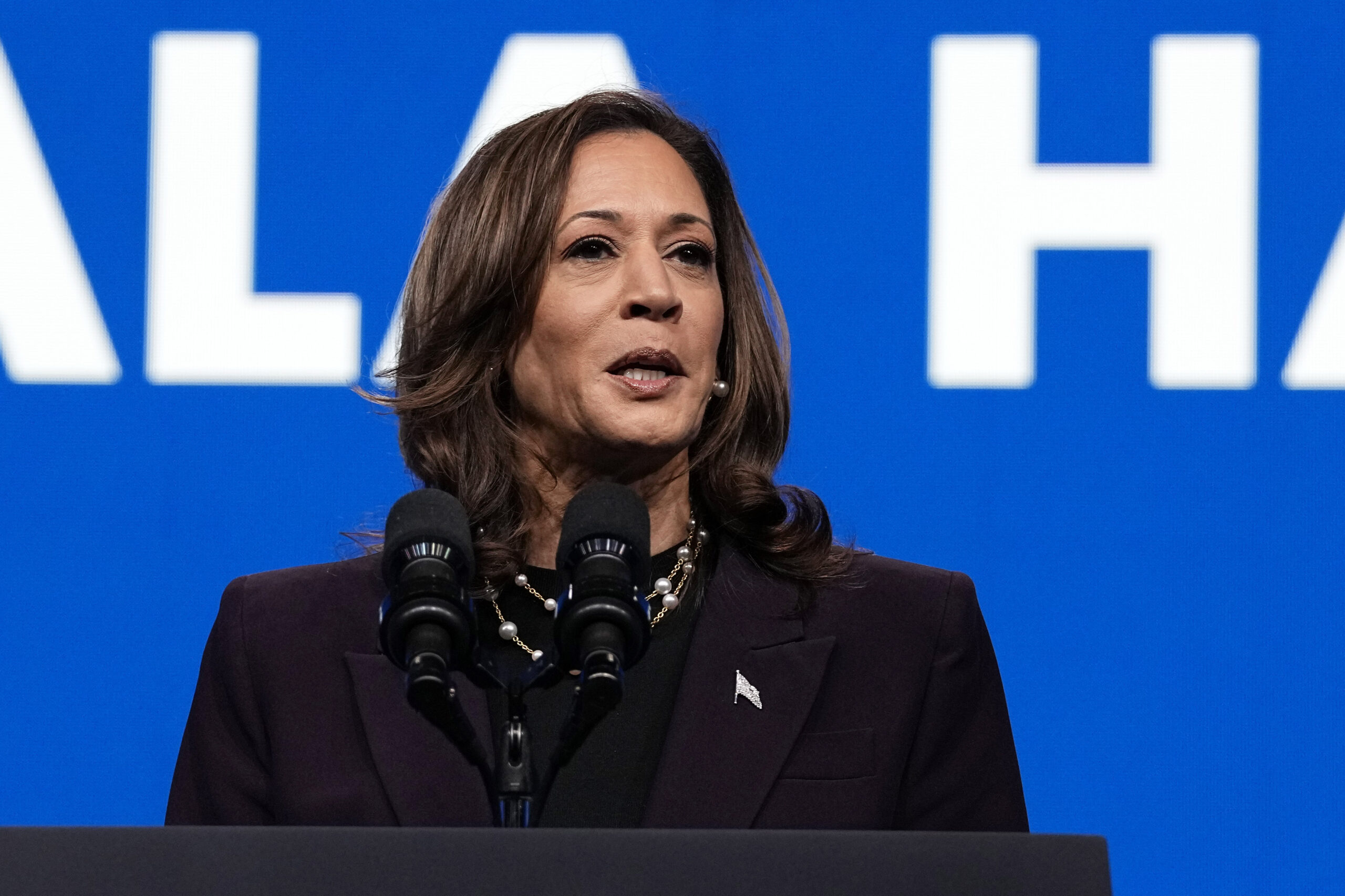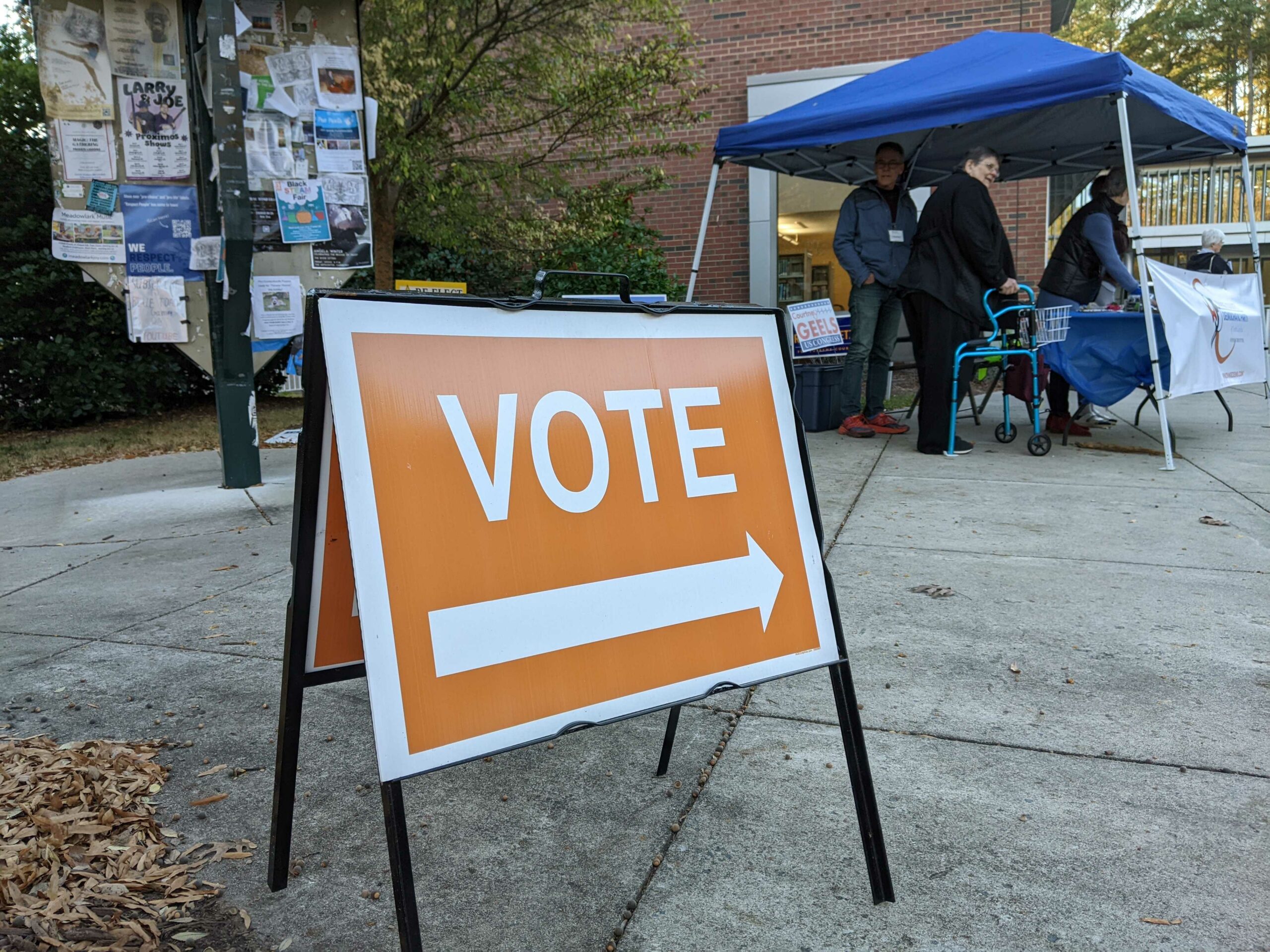Tom Jensen, the director of Public Policy Polling, took some time to chat with 97.9 The Hill’s Aaron Keck on Monday morning. Jensen and Keck discussed the potential 12-week abortion restriction in North Carolina, partisan gerrymandering and looked ahead to the 2024 presidential election.
Check out highlights of the interview below, which have been lightly edited for clarity, and click here to listen to the full conversation!
Aaron Keck: What do we know about public opinion with respect to the abortion debate in North Carolina at this stage in the debate?
Tom Jensen: Well, we definitely know that there’s just not much appetite for putting further restrictions on abortion in North Carolina. Earlier this year, Meredith College did a pretty extensive poll looking at what people’s feelings are about the various different ways you could deal with abortion laws. But when you get to the bottom of it, 57 percent of voters either said that we should keep our abortion laws the way they are right now or make it easier to get an abortion. And only 34 percent of voters wanted any sort of further restrictions than we currently have. So a pretty overwhelming majority by 23 points that didn’t want state state lawmakers to do anything that restricted abortion. We know the General Assembly is making a pretty unpopular move with how they’re handling this.
Aaron Keck: I know we’ve talked before about the difference between polls when the issue is still kind of up in the air and abstract versus polls when you’ve got a specific thing that people are looking at. That Meredith survey was conducted before we had a specific bill. What do we know about how public opinion shifts, if at all, when you actually have a specific bill to look at and you can say, okay, it’s a 12-week ban with this provision and that provision. Does it change public opinion at all?
Tom Jensen: I wouldn’t think so in this particular case. I think the nuances for the most part probably don’t matter that much to voters. I think you either want stricter abortion laws or you want abortion laws to stay the way they are. And I doubt there are very many people who feel that differently about 12 weeks versus 15 weeks versus 20 weeks. And one thing I think that’s interesting about the North Carolina Republicans moving forward with this effort that’s clearly pretty unpopular is it’s not just theoretical public opinion polls that have shown that Republicans working to further restrict abortion is a problem for them.
We saw all across the country last year in the wake of the Supreme Court decision that Democratic prospects in their various elections ended up really improving after the Supreme Court got rid of Roe v. Wade. That was something that put the wind in the sails of Democratic campaigns across the country and allowed Democrats to have a much better election than expected. So, it’s interesting to see moving forward if the way that North Carolina Republicans have tried to handle this helps hand Josh Stein the governor’s race next year. And especially in statewide offices that can’t be gerrymandered, I think that this is something that’s gonna be pretty bad for the Republican brand, possibly.
Aaron Keck: You just mentioned the magic word, which is gerrymandering, because we are dealing with that as well. In North Carolina, the State Supreme Court just issued a ruling backing off of the partisan gerrymandering issue and effectively letting lawmakers do whatever they want as far as that goes — which means we’re likely to see heavily gerrymandered districts next year on partisan grounds that will be challenged legally. We’ve had that fight over and over again in North Carolina, but we’re likely to end up with pretty heavily gerrymandered districts one way or the other. What does that mean for lawmakers in 2024 and beyond in those districts that they can protect for themselves?
Tom Jensen: Well, it’s gonna be interesting to see how exactly Republicans try to go about this gerrymandering, to try to draw 73 seats for yourself in the House and 31 seats for yourself in the Senate, and really be absolutely sure that you’re gonna be able to — let’s say that Josh Stein is governor — to be able to make sure that you’re able to overturn his vetoes. I think that does mean that in some cases you’re gonna end up having to draw those districts a little thinly in terms of the extent to which Republicans are favored. You can’t draw 73 districts where Republicans have a 10 point advantage. To do that much of a gerrymander, you’re gonna have to do a fair number of districts where Republicans maybe have a two-, three-, four-point advantage and assume that’s gonna carry the day. And especially in the areas of the state that are growing the most and have really highly-educated electorates and the suburbs of places like Raleigh and Charlotte and Greensboro and Winston-Salem.
This abortion issue is the kind of thing that can cause Republicans to lose districts where they have just a two- or three-point advantage — but where things have sort of been trending away from them over the course of time since Trump came on the scene. It’s gonna be interesting to see. Something that happened a fair amount last decade was places that Republicans had gerrymandered in 2011 into being places that they were never supposed to lose the entire decade. They were, especially nationally, losing a fair amount of those kinds of districts by the time that those maps had been in use for 10 years because there had been so many underlying political changes that had made those places more winnable for Democrats. There may be some limit to the amount of immediate accountability Republicans have on abortion because of their ability to draw these new districts. But it is something where I think, long-term, it might not work out quite as well for them as they think.
Aaron Keck: One of the key figures in all of this is Tricia Cotham, who was a Democrat who was very vocal in support of abortion rights and then very recently switched parties after having been elected as a Democrat in the pretty heavily Democratic district and is now voting for this 12-week abortion ban. What do voters in her district think about that?
Tom Jensen: Well, they’re extremely unhappy with her. Only 26 percent of voters in her district have a positive opinion of her. Forty-eight percent have a negative one, and if she had to stand for re-election right now, she’d lose to her Democratic opponent by 24 points. But to the point of the discussion that we were just having about gerrymandering, I think it’s pretty safe to say that she’s not gonna have to run again in a district that’s inclined to vote for a Democrat over her by 24 points. I think that if she does want to run again and stay in the General Assembly when they redraw these maps to make them better for Republicans, they’ll take care of her. That’s sort of a microcosm of how Republicans may avoid some accountability on this issue. Somebody like Cotham, who — after voting for these abortion restrictions — would certainly have really absolutely no chance at getting reelected next year, may get bailed out simply by structural reasons of getting to run somewhere completely different.
Aaron Keck: As we wrap up, I just want to ask one quick question about the national political scene. Because we got a poll over the weekend that made some headlines from ABC News and the Washington Post showing a really low approval rating for Joe Biden and an unfavorable matchup with Donald Trump in the general election. Now that kind of looks like an outlier, and I saw on on aggregates that most polls show Biden in a better position than this one particular poll does. But a lot of those surveys are all over the map and in terms of what Biden’s current approval rating is. So what are you seeing in terms of the numbers that you’re running?
Tom Jensen: We think that Biden’s up by about four points on Trump nationally, which is really about exactly how the 2020 election played out, which would still mean that it would be very close in the electoral college. And then when it comes to Biden’s approval rating, we do usually find him in the low to mid-forties. He’s not popular, but I don’t think that his approval rating’s down in the thirties either. He’s certainly more well thought of than Donald Trump. Almost every poll that we do, even if it’s in a state that maybe voted for Trump by a little bit in 2020, we’ll find that Biden’s net favorability is about 10 points better than Trump’s. I do think that poll yesterday was an outlier — and that’s not a criticism of it. You’re just gonna have outlier polls. But of course, as often happens, that seems to be the poll that got the most attention of every poll that’s been done so far this year. Precisely because it was an outlier and you can use it to get people freaked out on both sides of the fence. I don’t put much stock in how those numbers came out.
Aaron Keck: I always tell people that when you’re watching the news, you’re hearing about the unusual things, but then when you’re looking at polls, you need to pay attention to the usual things, and those aren’t the things that the news typically covers.
Tom Jensen: Yeah. Most of the polls that have Biden with a low single-digit lead, that’s pretty boring compared to Biden getting his butt kicked by Trump. So that’s what people end up hearing more about.
Featured image via The News & Observer/Ethan Hyman
Chapelboro.com does not charge subscription fees, and you can directly support our efforts in local journalism here. Want more of what you see on Chapelboro? Let us bring free local news and community information to you by signing up for our biweekly newsletter.








